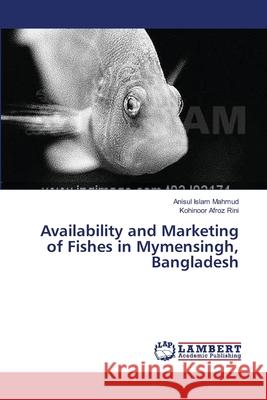Availability and Marketing of Fishes in Mymensingh, Bangladesh » książka
Availability and Marketing of Fishes in Mymensingh, Bangladesh
ISBN-13: 9783659395758 / Angielski / Miękka / 2013 / 60 str.
In the present study fish marketing systems in different markets of Mymensingh town, market price, consumers perceptions and fish sellers livelihoods were studied for a period of six months from July to December 2007. Data were collected through questionnaire interviews and focus group discussions. The market chain from producers to consumers passes through a number of intermediaries. Based on a sample of 60 retailers from the three different markets, the daily supply of fish were estimated as 5-6, 2-3 and 1-2 tonnes respectively. Most of the fishes (85%) have been transported from the rural areas of the district and the remaining part from external sources (15%). It is estimated that 48% of fish supplied in the markets were carps, 8% hilsa, 13% catfish, 7% small indigenous fish, 4.33% Thai koi, 3.66% prawns and shrimps, 6% tilapia, and 10% others including marine fish. The price of fish depends on market structure, species quality, size and weight. It was found that the price per kilogram of carp increases with size symmetrically. The retailers in the three markets made a considerable amount of profit. It was found that 73.33% of the retailers have improved their livelihood status
In the present study fish marketing systems in different markets of Mymensingh town, market price, consumers perceptions and fish sellers livelihoods were studied for a period of six months from July to December 2007. Data were collected through questionnaire interviews and focus group discussions. The market chain from producers to consumers passes through a number of intermediaries. Based on a sample of 60 retailers from the three different markets, the daily supply of fish were estimated as 5-6, 2-3 and 1-2 tonnes respectively. Most of the fishes (85%) have been transported from the rural areas of the district and the remaining part from external sources (15%). It is estimated that 48% of fish supplied in the markets were carps, 8% hilsa, 13% catfish, 7% small indigenous fish, 4.33% Thai koi, 3.66% prawns and shrimps, 6% tilapia, and 10% others including marine fish. The price of fish depends on market structure, species quality, size and weight. It was found that the price per kilogram of carp increases with size symmetrically. The retailers in the three markets made a considerable amount of profit. It was found that 73.33% of the retailers have improved their livelihood status











